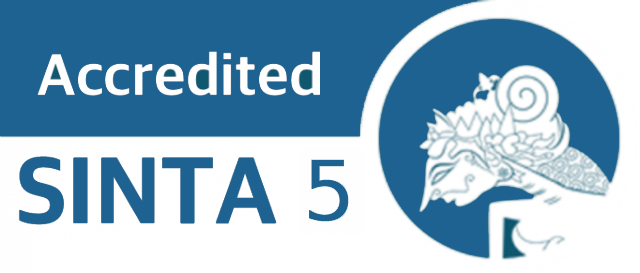PENERAPAN PENDEKATAN PEMBELAJARAN PROBLEM BASED LEARNING BERBASIS MEDIA STIK ES KRIM UNTUK MENINGKATKAN KEMAMPUAN KOMUNIKASI MATEMATIS DI KELAS 1 SD PLUS NURUL AULIA
DOI:
https://doi.org/10.22460/collase.v2i1.3016Abstract
This study aims to determine the increase in mathematical communication skills of elementary students using the Problem Based Learning (PBL) approach by using ordinary learning, knowing whether the learning applied in the classroom is in accordance with the PBL approach, and also to determine students' understanding of mathematics subjects general, PBL approach and media-based mathematical communication skills of ice cream sticks as a support. The research method used in this study was quasi-experimental. The population of this study was class 1B students as the experimental class and class 1A as the control class. The research instruments used in this study consisted of test and non-test instruments consisting of 5 items about mathematical communication skills and 8 types of student worksheets. From the results of research and data analysis that has been done, it can be concluded that:(1) the achievement of mathematical communication skills of students who use the PBL approach is better than those using ordinary learning; (2) improving the mathematical communication skills of students who learn to use the PBL approach better than those who use ordinary learning.
References
Arikunto. (2012). Prosedur Penelitian (edisi 2). Jakarta: PT Bumi Aksara.
Arsyad. (2007). Media Pembelajaran. Jakarta: Grafindo Persada.
Artzt, A. F. (1996). Developing Problem Solving Behaviors by Assessing Communication In Cooperative Learning. London: Yearbook.
Baroody. (2003). Problem Solving, Reasoning, and Communicating. Newyork: Macmillan Publishing.
Choridah D. T. (2013). Peran pembelajaran berbasis masalah untuk meningkatkan kemampuan Komunikasi dan berfikir kreatif serta disposisi matematis siswa SMA. Infinity Jurnal Ilmiah Program Studi Matematika STKIP Siliwangi Bandung, 2, 11.
Greenes, C. & Schulman, L. (2006). Communication Processes in Mathematical Explorations and Investigations. Newyork: In P. C. Elliott and M. J. Kenney (Eds.).
Hariyanto. (2014). Pembelajaran Aktif Teori dan Asesmen. Bandung: PT Remaja Rosdakarya.
Heruman. (2007). Model Pembelajaran di Sekolah Dasar. Bandung: Karya Offset.
Iriantara. (2014). Komunikasi Pembelajaran. Bandung: PT Remaja Rosdakarya.
Jacob. (2003). Matematika Sebagai komunikasi. Makalah pada Seminar Tingkat Nasional. FPMIPA UPI, 20.
Harwell. Joan M, (1982). Teaching Children Mathematics. Virginia: In P.c. Elliott, dan M.J.
Lisnawaty. (1999). Metode Mengajar Matematika 1. Jakarta: PT. Rineka Cipta.
Pitadjeng. (2006). Pembelajaran Matematika yang Menyenangkan. Jakarta: PT Remaja Rosdakarya.
Ruseffendi, E, T. (2010). Dasar-Dasar Penelitian Pendidikan dan Bidang Non-Eksakta Lainnya. Bandung: Tasito.
Rusman. (2012). Peningkatan Pemahaman dan Komunikasi Matematis serta Kemandirian Belajar Siswa. Jakarta: CV. Wacana Prima.
Rusmono. (2012). Strategi Pembelajaran dengan Problem Based Learning itu perlu. Jakarta: Ghalia Indonesia.
Subarinah, S. (2006). Inovasi Pembelajaran Matematika SD. Jakarta: Depdiknas.
Ulfa, A. (2016). Model Pembelajaran Problem Based Learning (PBL) dan Kooperatif Tipe Group Investigasi (GI). Bandung: Reflika Aditama.
Warsono. (2012). Pengaruh Model Pembelajaran Berbasis Masalah. Jakarta: PT Remaja Rosdakarya.









